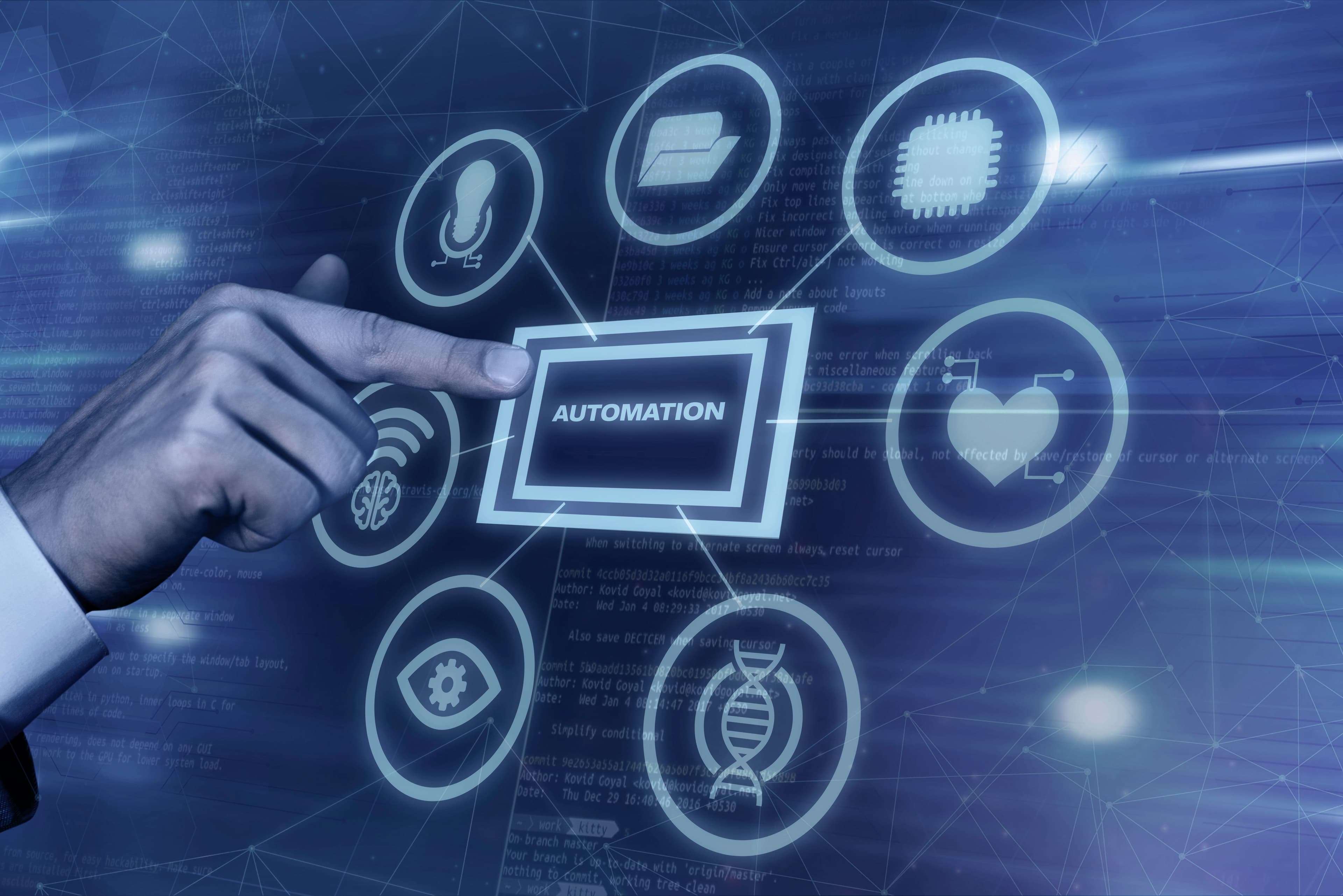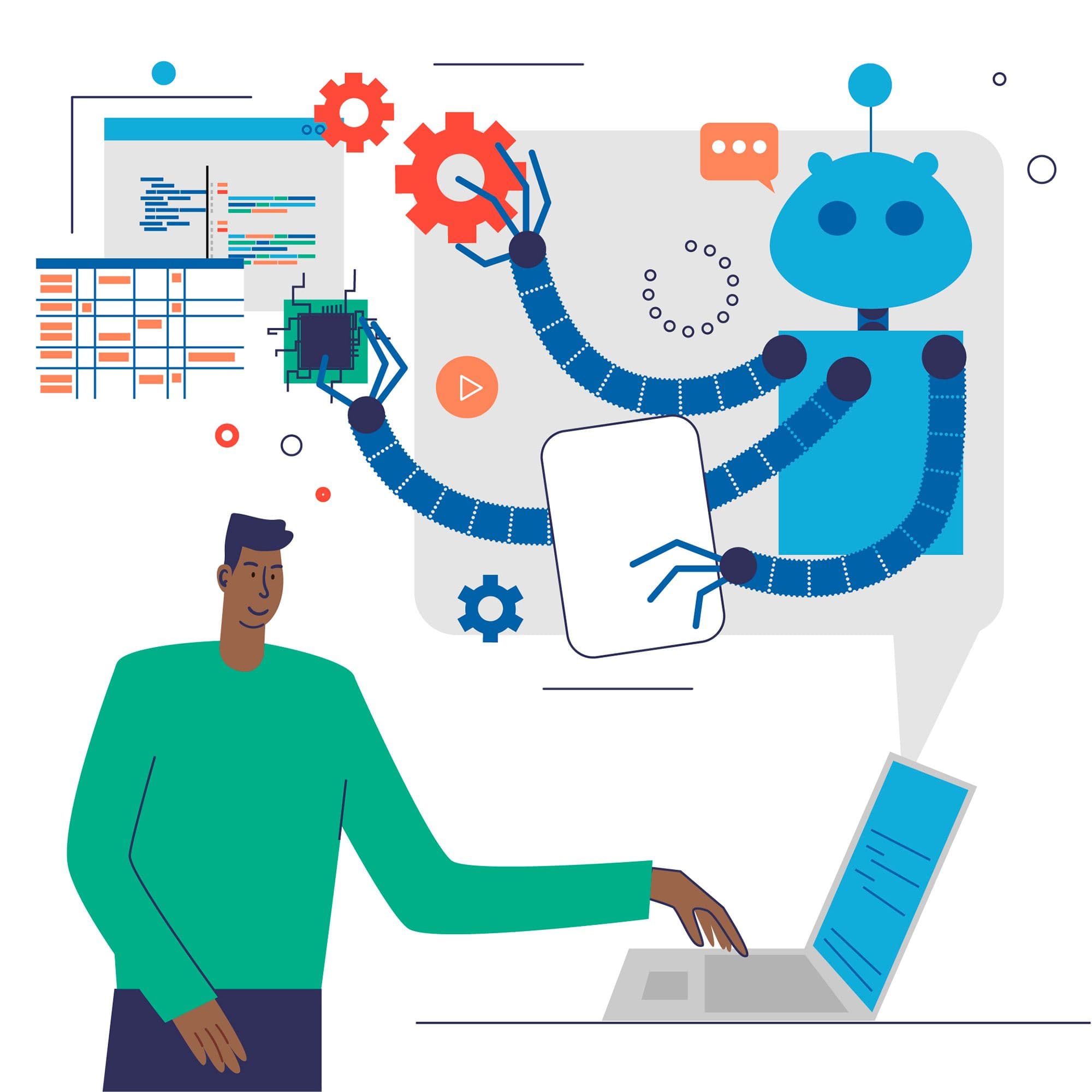Robotic Process Automation (RPA) Solutions: How Enterprises Cut Costs and Scale with Smarter Automation
Learn how RPA helps enterprises cut costs, boost efficiency, and scale. Tammwe delivers bespoke end-to-end automation solutions.

Did you know the average employee spends 40% of their workweek on repetitive, manual tasks like data entry, invoice processing, or compliance checks? That’s nearly two full days of productivity lost.
Enterprises today are under pressure to deliver more with less, faster services, lower costs, and greater accuracy. Robotic Process Automation (RPA) solutions have emerged as a game-changer, helping businesses automate repetitive tasks, unlock efficiency, and scale operations without ballooning headcount.
According to Deloitte, RPA reduces operational costs by 30–60%, and most enterprises see payback within 12 months. This isn’t just about cutting costs, it’s about unlocking agility, compliance, and competitive advantage in an increasingly digital-first market.
What is Robotic Process Automation (RPA)?

At its core, Robotic Process Automation (RPA) is software that mimics human actions in digital systems. Think of it as a “digital worker” that can log into applications, extract information, process transactions, and generate reports, all without human intervention.
Unlike Artificial Intelligence (AI), which focuses on learning, predicting, and decision-making, RPA is rule-based. It follows clear instructions to handle repetitive, structured tasks at speed and scale.
Where things get really exciting is when RPA meets AI. That’s where intelligent automation and hyperautomation come in, allowing bots to not just “do”, but also to “think and adapt”.
The Business Case for RPA in Enterprises
Why are enterprises investing heavily in RPA? Let’s look at the data:
- 30–60% reduction in costs: Deloitte reports that enterprises cut nearly half their operating costs with RPA.
- 52% of FTE capacity freed: Forrester found that RPA can free up more than half of full-time equivalent capacity by taking over repetitive tasks.
- 78% of businesses plan to increase RPA investments: Gartner confirms that RPA is no longer experimental; it’s strategic.
- 12-month payback period: McKinsey found most enterprises achieve ROI in under a year.
For large organisations juggling compliance, customer service, and legacy systems, the ROI is crystal clear: RPA reduces errors, ensures compliance, and accelerates processes, all while keeping costs lean.
What are The Top Benefits of RPA for Enterprises

1. Cost Savings with RPA
By replacing repetitive tasks with automation, enterprises can reduce labour costs significantly. Savings often range between 30–60% per process, depending on complexity.
2. Accuracy & Compliance
RPA bots don’t get tired, distracted, or make typos. This ensures audit-ready accuracy and minimises compliance risks—critical in industries like finance, healthcare, and logistics.
3. Scalability on Demand
Need to process 100 invoices one day and 10,000 the next? RPA scales effortlessly without requiring new hires. Enterprises can flex up or down depending on workload.
4. Workforce Productivity
Freeing employees from repetitive work allows them to focus on strategic, customer-facing, and revenue-generating tasks. This not only boosts efficiency but also increases employee satisfaction.
5. Integration with Legacy Systems
RPA doesn’t require ripping and replacing core infrastructure. It works with existing enterprise systems, extending the life and value of legacy tech.
Get RPA as Part of End-to-End Bespoke Tech Solutions
For forward-looking enterprises, RPA isn’t just a standalone tool. It’s part of a bigger digital transformation journey.
At Tammwe, we integrate RPA solutions into end-to-end bespoke tech delivery, combining:
- AI & Data Analytics: Adding intelligence to RPA for smarter decision-making.
- Infrastructure Modernisation: Enabling bots to run securely and efficiently at scale.
- Cloud Integration: Ensuring flexibility and resilience.
- Enterprise Modernisation: Streamlining outdated workflows with automation-first approaches.
This is where enterprises unlock the real magic: automation that’s tailored, scalable, and aligned with business outcomes.
What is The Future of RPA: Hyperautomation & Intelligent Bots
RPA is just the beginning. The future is hyperautomation—the combination of RPA, AI, machine learning, and analytics to automate end-to-end business processes.
- Hyperautomation: Gartner predicts it will be a top trend in enterprise tech for years to come, driving automation across all departments.
- Intelligent Bots: Next-gen bots can handle unstructured data, learn from interactions, and work seamlessly across systems.
- Human + Machine Collaboration: By 2030, Gartner forecasts that 80% of humans will interact with bots daily, whether in customer service, HR, or finance.
RPA isn’t about replacing jobs; it’s about augmenting the workforce, creating room for creativity, innovation, and growth.
How to Get Started with RPA in Your Enterprise
If you’re considering RPA for enterprises, here’s a roadmap to start strong:
- Identify Processes: Target repetitive, rules-based, and high-volume processes first.
- Start Small: Launch a pilot project with measurable KPIs (e.g., invoice processing).
- Scale Gradually: Expand RPA into other departments after proving ROI.
- Integrate with Intelligent Automation: Combine RPA with AI and analytics for deeper transformation.
- Partner with Experts: Work with bespoke automation specialists like Tammwe for end-to-end delivery.
Get RPA as a Growth Accelerator
In today’s enterprise landscape, Robotic Process Automation (RPA solutions) aren’t just a cost-cutting tactic; they’re a scalability engine. With payback in under a year, improved compliance, and workforce empowerment, RPA is rapidly becoming an enterprise essential.
At Tammwe, we don’t just deploy bots. We deliver end-to-end bespoke automation solutions, from RPA to AI, cloud, and infrastructure modernization, that help enterprises cut costs, scale faster, and innovate with confidence.
Book a free consultation today to explore how our intelligent automation solutions can transform your enterprise.
FAQ (Frequently Asked Questions About RPA)
What is Robotic Process Automation (RPA)?
RPA is software that automates repetitive, rule-based tasks by mimicking human actions on digital systems.
How much does RPA cost?
Costs vary depending on process complexity and scale, but most enterprises see 30–60% savings per process and payback within 12 months.
What are the benefits of RPA for enterprises?
Key benefits include cost reduction, higher accuracy, compliance, scalability, and freeing employees to focus on high-value work.
What is hyperautomation?
Hyperautomation combines RPA with AI, machine learning, and analytics to automate end-to-end business processes across the enterprise.
0 comments
newest


